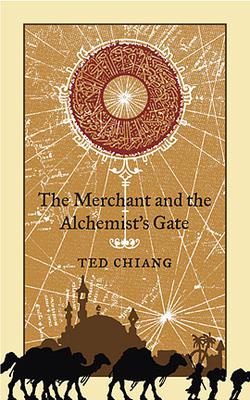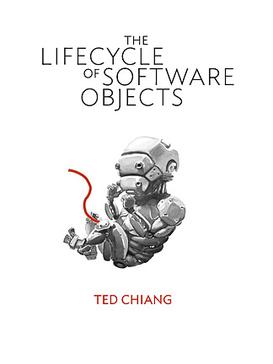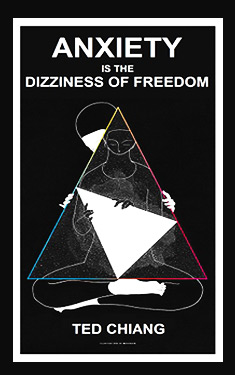Related Research Articles

Creative nonfiction is a genre of writing that uses literary styles and techniques to create factually accurate narratives. Creative nonfiction contrasts with other nonfiction, such as academic or technical writing or journalism, which are also rooted in accurate fact though not written to entertain based on prose style. Many writers view creative nonfiction as overlapping with the essay.

Ted Chiang is an American science fiction writer. His work has won four Nebula awards, four Hugo awards, the John W. Campbell Award for Best New Writer, and six Locus awards. His short story "Story of Your Life" was the basis of the film Arrival (2016). He was an artist in residence at the University of Notre Dame in 2020–2021. Chiang is also a frequent non-fiction contributor to the New Yorker Magazine, most recently on topics related to computer technology, such as artificial intelligence.
New Journalism is a style of news writing and journalism, developed in the 1960s and 1970s, that uses literary techniques unconventional at the time. It is characterized by a subjective perspective, a literary style reminiscent of long-form non-fiction. Using extensive imagery, reporters interpolate subjective language within facts whilst immersing themselves in the stories as they reported and wrote them. In traditional journalism, the journalist is "invisible"; facts are meant to be reported objectively.

John Michael Scalzi II is an American science fiction author and former president of the Science Fiction and Fantasy Writers of America. He is best known for his Old Man's War series, three novels of which have been nominated for the Hugo Award, and for his blog Whatever, where he has written on a number of topics since 1998. He won the Hugo Award for Best Fan Writer in 2008 based predominantly on that blog, which he has also used for several charity drives. His novel Redshirts won the 2013 Hugo Award for Best Novel. He has written non-fiction books and columns on diverse topics such as finance, video games, films, astronomy, writing and politics, and served as a creative consultant for the TV series Stargate Universe.

Jonathan Strahan is an editor and publisher of science fiction, fantasy, and horror. His family moved to Perth, Western Australia in 1968, and he graduated from the University of Western Australia with a Bachelor of Arts in 1986.

Sarah Bear Elizabeth Wishnevsky is an American author who works primarily in speculative fiction genres, writing under the name Elizabeth Bear. She won the 2005 John W. Campbell Award for Best New Writer, the 2008 Hugo Award for Best Short Story for "Tideline", and the 2009 Hugo Award for Best Novelette for "Shoggoths in Bloom". She is one of a small number of writers who have gone on to win multiple Hugo Awards for fiction after winning the John W. Campbell Award for Best New Writer.

"Story of Your Life" is a science fiction novella by American writer Ted Chiang, first published in Starlight 2 in 1998, and in 2002 in Chiang's collection of short stories, Stories of Your Life and Others. Its major themes are language and determinism.

"The Merchant and the Alchemist's Gate" is a fantasy novelette by American writer Ted Chiang, originally published in 2007 by Subterranean Press and reprinted in the September 2007 issue of Fantasy & Science Fiction. In 2019, the novelette was included in the collection of short stories Exhalation: Stories.
Eidetic memory, also known as photographic memory and total recall, is the ability to recall an image from memory with high precision—at least for a brief period of time—after seeing it only once and without using a mnemonic device.

"Exhalation" is a science fiction short story by American writer Ted Chiang, about the Second Law of Thermodynamics. It was first published in 2008 in the anthology Eclipse 2: New Science Fiction and Fantasy, edited by Jonathan Strahan. In 2019, the story was included in the collection of short stories Exhalation: Stories.

Stories of Your Life and Others is a collection of short stories by American writer Ted Chiang originally published in 1998, and later in 2002 in a collection of short stories by Tor Books. It collects Chiang's first eight stories. All of the stories except "Liking What You See: A Documentary" were previously published individually elsewhere.

The Lifecycle of Software Objects is a novella by American writer Ted Chiang, originally published in 2010 by Subterranean Press. It focuses on the creation of digital entities and their growth as they are raised by human trainers over the course of many years. The novella received critical praise, winning the 2011 Locus Award for Best Novella and the 2011 Hugo Award for Best Novella.
Rachel Swirsky is an American literary, speculative fiction and fantasy writer, poet, and editor living in Oregon. She was the founding editor of the PodCastle podcast and served as editor from 2008 to 2010. She served as vice president of the Science Fiction and Fantasy Writers of America in 2013.

Nebula Awards Showcase 2001 is an anthology of science fiction short works edited by Robert Silverberg. It was first published in hardcover and trade paperback by Harcourt in April 2001.

Sam J. Miller is an American science fiction, fantasy and horror short fiction author. His stories have appeared in publications such as Clarkesworld, Asimov's Science Fiction, and Lightspeed, along with over 15 "year's best" story collections. He was finalist for multiple Nebula Awards along with the World Fantasy and Theodore Sturgeon Awards. He won the 2013 Shirley Jackson Award for his short story "57 Reasons for the Slate Quarry Suicides." His debut novel, The Art of Starving, was published in 2017 and his novel Blackfish City won the 2019 John W. Campbell Memorial Award.

A Borrowed Man is a 2015 science fiction hardboiled noir novel by Gene Wolfe.

Exhalation: Stories is a collection of short stories by American writer Ted Chiang. The book was initially released on May 7, 2019, by Alfred A. Knopf. This is Ted Chiang's second collection of short works, after the 2002 book Stories of Your Life and Others. Exhalation: Stories contains nine stories exploring such issues as humankind's place in the universe, the nature of humanity, bioethics, virtual reality, free will and determinism, time travel, and the uses of robotic forms of A.I. Seven tales were initially published between 2005 and 2015; "Omphalos" and "Anxiety is the Dizziness of Freedom" are originals.
"Seventy-Two Letters" is a science fiction novella by American writer Ted Chiang, published in June 2000 in the Ellen Datlow's anthology Vanishing Acts. The novella can also be found in the anthologies Year's Best SF 6 (2001), edited by David G. Hartwell and Steampunk (2008), edited by Jeff and Ann VanderMeer. It is included in the collection Stories of Your Life and Others (2002).

"Anxiety Is the Dizziness of Freedom" is a science fiction novella by American writer Ted Chiang, initially published in 2019 collection Exhalation: Stories. The novella's name quotes a proverb by Danish philosopher Søren Kierkegaard in his work The Concept of Anxiety. An abridged version of the novella was also published under the title "Better Versions of You" in the literary supplement to The New York Times.

The Best of Harry Turtledove is a collection of science fiction short stories by American author Harry Turtledove. It was first published in hardcover and ebook by Subterranean Press in April 2021.
References
- ↑ 2014 Hugo Awards, at TheHugoAwards.org; retrieved January 21, 2017
- ↑ This new Ted Chiang short story could change your life, by Charlie Jane Anders, at io9; published October 25, 2013; retrieved January 21, 2017
- ↑ Science fiction roundup: 'Authority,' year's best collections, by Gary K. Wolfe, in the Chicago Tribune ; published June 20, 2014; retrieved January 21, 2017
- ↑ Short Fiction Snapshot #7: "The Truth of Fact, the Truth of Feeling" by Ted Chiang, reviewed by Abigail Nussbaum, at Strange Horizons; published March 3, 2014; retrieved January 21, 2017
- ↑ Short Fiction Spotlight: "The Truth of Fact, the Truth of Feeling" by Ted Chiang, by Lee Mandelo, at Tor.com; published December 3, 2013; retrieved January 21, 2017